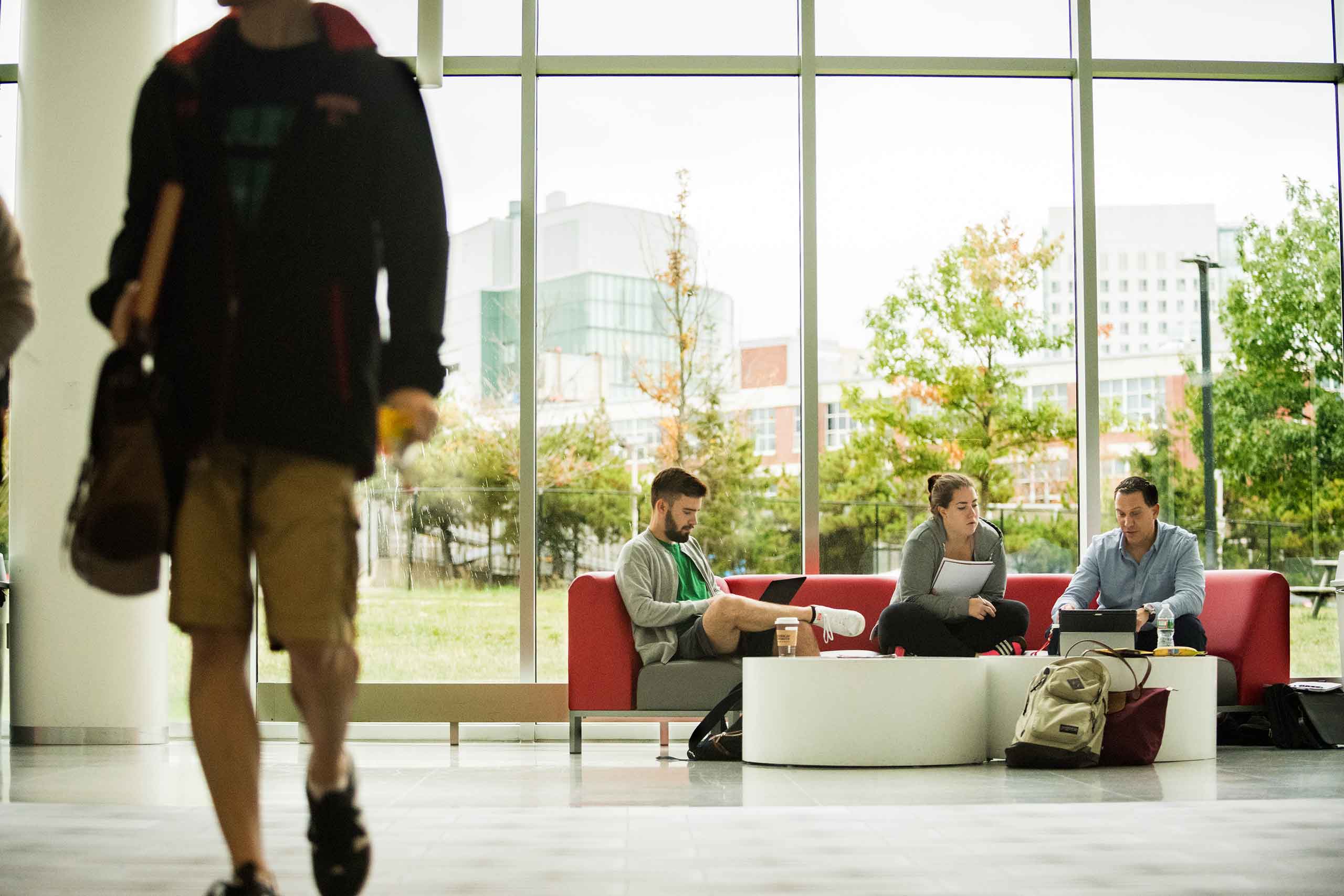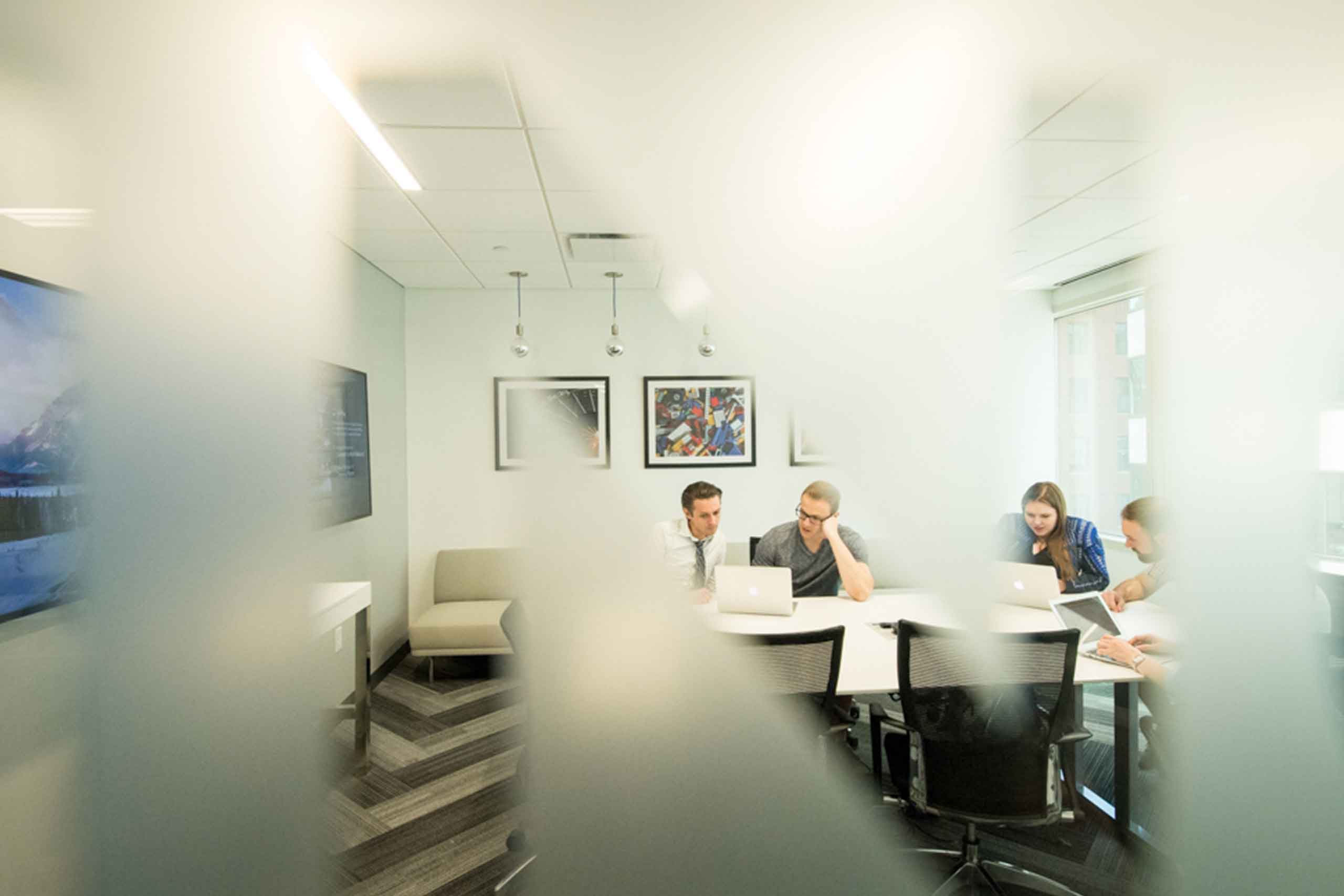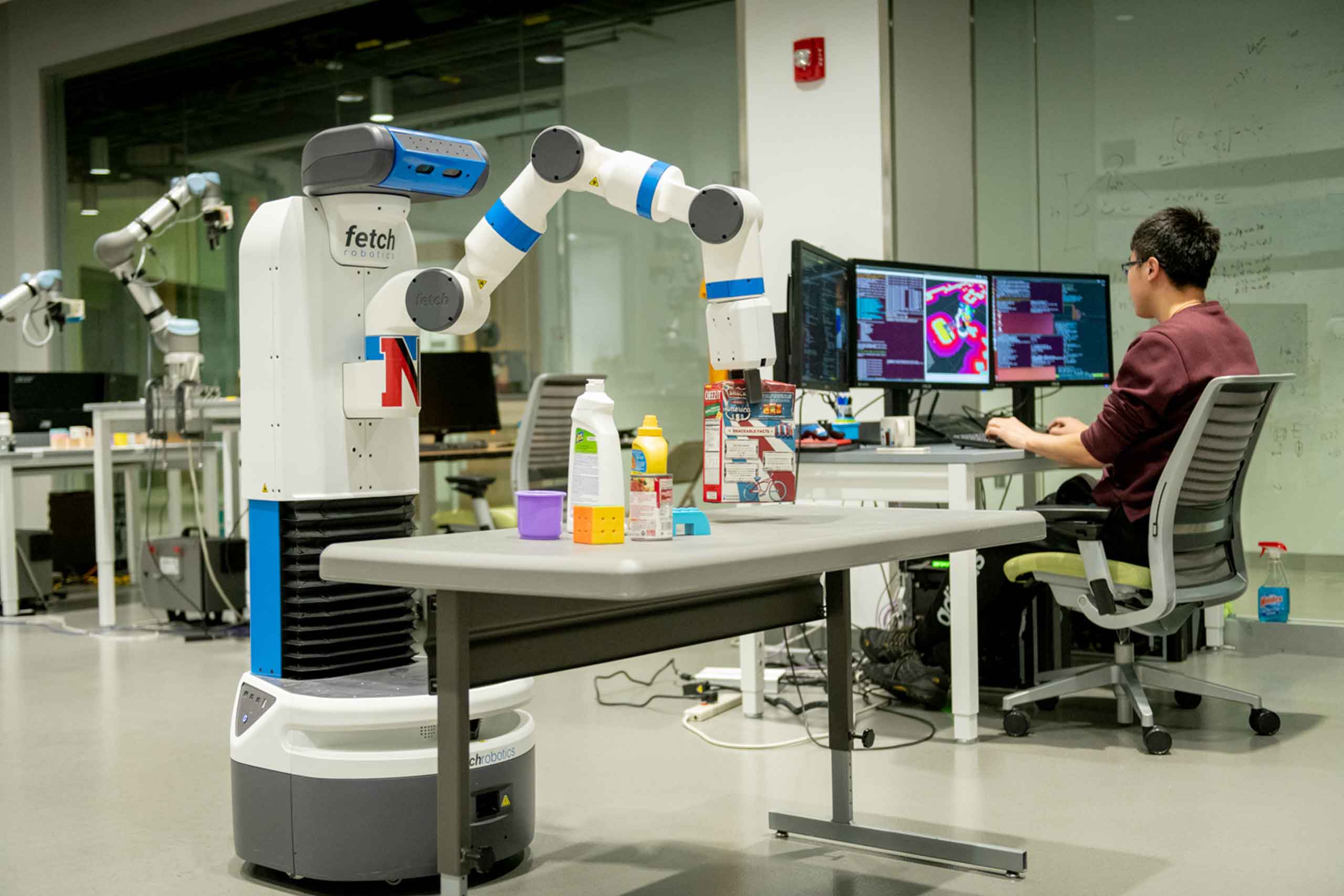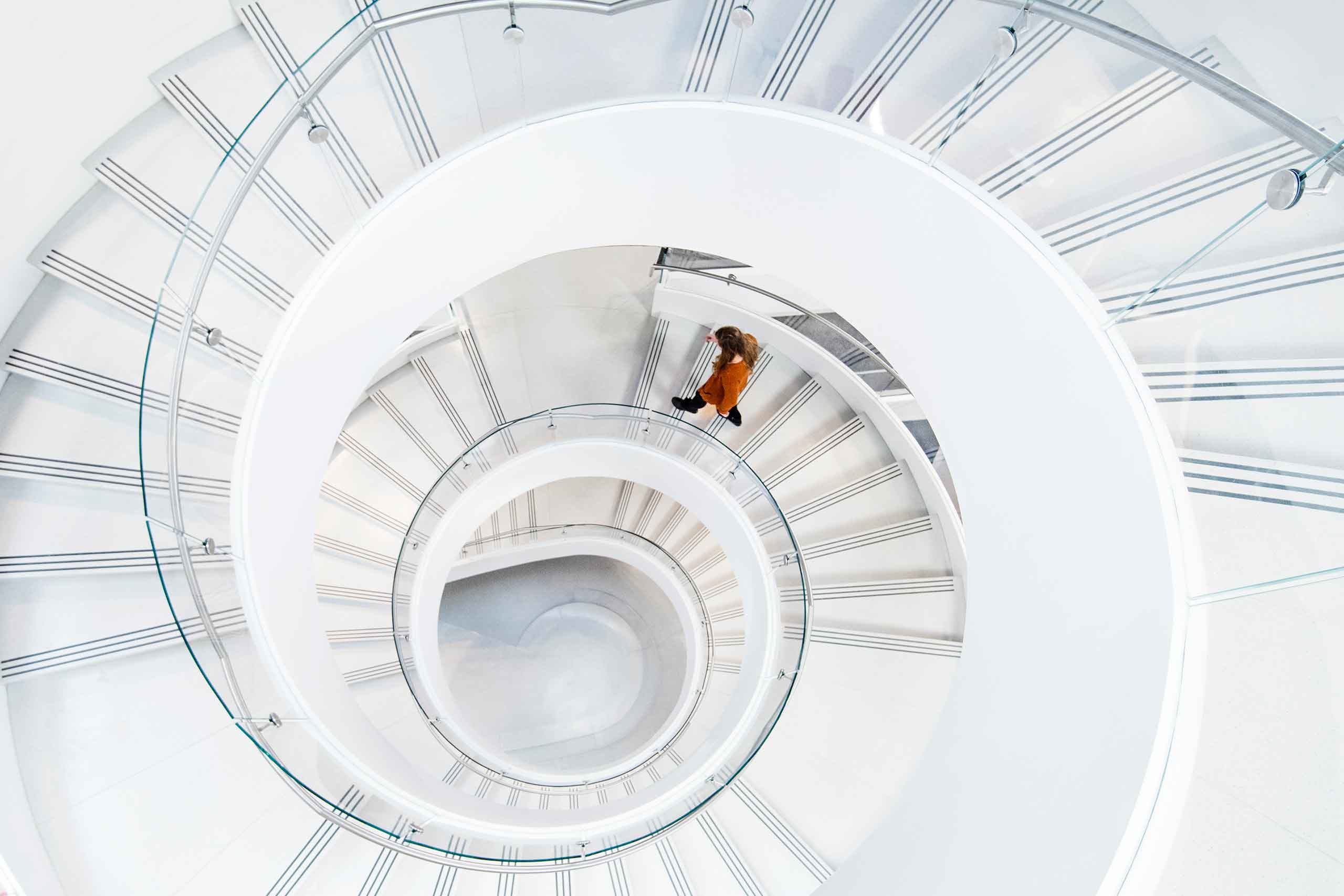
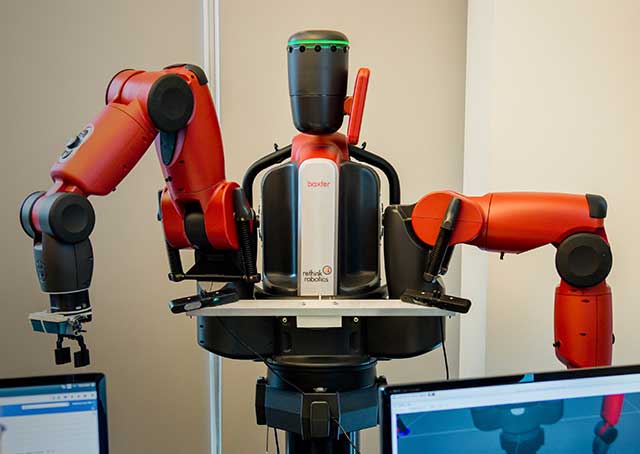
Robotics

Wed 01.20.16

Robotics
Wed 01.20.16



Wed 01.20.16

Wed 01.20.16



Wed 01.20.16

Wed 01.20.16
robotic manipulation, perception, humanoid robotics, human-robot interaction, health counseling robots
robotic manipulation, perception, humanoid robotics, human-robot interaction, health counseling robots
robotic manipulation, perception, humanoid robotics, human-robot interaction, health counseling robots
robotic manipulation, perception, humanoid robotics, human-robot interaction, health counseling robots
Robotics research at Khoury College of Computer Sciences is focused on developing the learning, planning, human interaction, and perception algorithms that will power the robots of tomorrow. From drones to driverless cars, robotic systems once only dreamed of are now becoming reality. But, until they can interact with the everyday world as fluently as humans, robots will remain limited. Truly fluid interaction necessitates advances in computer vision, planning and control, perception and human robot interaction—all areas that are pushing robotics research at Northeastern forward.
Robotics research at Khoury College of Computer Sciences is focused on developing the learning, planning, human interaction, and perception algorithms that will power the robots of tomorrow. From drones to driverless cars, robotic systems once only dreamed of are now becoming reality. But, until they can interact with the everyday world as fluently as humans, robots will remain limited. Truly fluid interaction necessitates advances in computer vision, planning and control, perception and human robot interaction—all areas that are pushing robotics research at Northeastern forward.
Robotics research at Khoury College of Computer Sciences is focused on developing the learning, planning, human interaction, and perception algorithms that will power the robots of tomorrow. From drones to driverless cars, robotic systems once only dreamed of are now becoming reality. But, until they can interact with the everyday world as fluently as humans, robots will remain limited. Truly fluid interaction necessitates advances in computer vision, planning and control, perception and human robot interaction—all areas that are pushing robotics research at Northeastern forward.
Robotics research at Khoury College of Computer Sciences is focused on developing the learning, planning, human interaction, and perception algorithms that will power the robots of tomorrow. From drones to driverless cars, robotic systems once only dreamed of are now becoming reality. But, until they can interact with the everyday world as fluently as humans, robots will remain limited. Truly fluid interaction necessitates advances in computer vision, planning and control, perception and human robot interaction—all areas that are pushing robotics research at Northeastern forward.
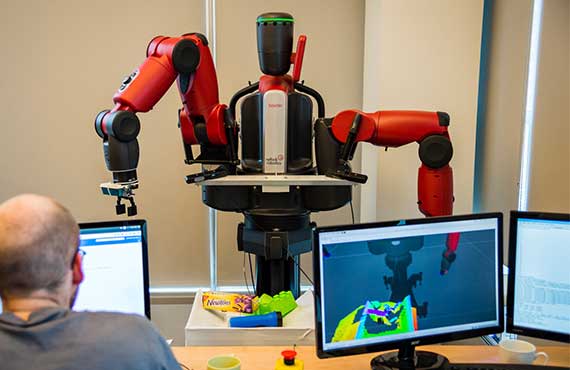
Robotics is a rapidly growing area of interdisciplinary research at Khoury College. We work closely with our colleagues in the electrical and computer engineering and mechanical and industrial engineering departments. We place major emphasis on applying our work to real-world problems and fielding physical systems. As a doctorate or graduate student, you’ll gain experience fielding physical robotic systems that demonstrate unique capabilities.

Robotics is a rapidly growing area of interdisciplinary research at Khoury College. We work closely with our colleagues in the electrical and computer engineering and mechanical and industrial engineering departments. We place major emphasis on applying our work to real-world problems and fielding physical systems. As a doctorate or graduate student, you’ll gain experience fielding physical robotic systems that demonstrate unique capabilities.

Robotics is a rapidly growing area of interdisciplinary research at Khoury College. We work closely with our colleagues in the electrical and computer engineering and mechanical and industrial engineering departments. We place major emphasis on applying our work to real-world problems and fielding physical systems. As a doctorate or graduate student, you’ll gain experience fielding physical robotic systems that demonstrate unique capabilities.

Robotics is a rapidly growing area of interdisciplinary research at Khoury College. We work closely with our colleagues in the electrical and computer engineering and mechanical and industrial engineering departments. We place major emphasis on applying our work to real-world problems and fielding physical systems. As a doctorate or graduate student, you’ll gain experience fielding physical robotic systems that demonstrate unique capabilities.

